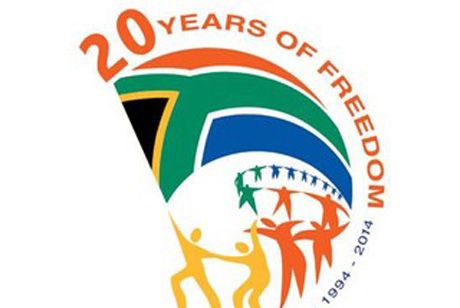Features
You are here
South Africa 20 years after apartheid

April 27, 2014
On April 27, 1994 South Africa held its first democratic election, marking the victory over apartheid. But 20 years later the majority of people continue to live in poverty, and the ANC government has embraced austerity. What happened?
During the decades of apartheid rule the old African National Congress (ANC) had offered a radical vision of an egalitarian future South Africa. Its grand narrative had spoken the language of socialism, anti-imperialism and black nationalism. This older ANC had frightened western capitalism so much that Margaret Thatcher and Ronald Reagan decided early on that ANC leaders like Nelson Mandela were dangerous communists readying to topple the racism free-market system in South Africa. Mandela was even branded a terrorist—remarkable given he had been in prison since 1964.
Mandela’s release in 1990 became the main story yet he was only one of several famous imprisoned ANC leaders—all of whom had given their lives to the anti-apartheid struggle that overthrew the Western-backed apartheid regime. The question was whether the ANC would deliver on its decades-old message.
From apartheid to capitalism
From 1990-94 as the ANC and the Zulu-dominated Inkatha Freedom Party fought and killed each other, the apartheid regime was busy hammering out an agreement with the ANC. The outgoing apartheid regime knew who the future political managers would be and that there was no turning back. What really mattered was the future economic system, maintaining wealth and privilege and limiting black retribution for apartheid's crimes to confessions and handshakes.
The basic agreement reached with the ANC altered the history of the country and derailed black aspirations. The basic power structure and private property rights were to be left intact. No doubt Mandela was warned that any future ANC plans for redistribution and nationalization would lead to an exodus of capital and skilled whites, currency devaluation, refusal for development loans and the enmity of Washington.
In 1994 as the first post-apartheid election took place returned an ANC-dominated government with Mandela as president, western capitalism was quite confident. There would be no need for Washington to send in its cavalry. The ANC like so many other nationalist, anti-imperial movements would be co-opted into the world capitalist system. This was not only the result of Western pressure but also the politics of the South African Communist Party (SACP)—which played a major role in the ANC and the Congress of South African Trade Unions (COSATU), and whose politics were dominated by the Stalinist “stagist” approach of seeing first a transition from apartheid to democracy and later one to socialism. In practice this prevented the historic movement against apartheid from developing into a socialist transformation of society, and instead led to a transition from apartheid to capitalism. The ANC embraced neoliberalism and imposed austerity with the full violence of the state, epitomized by the massacre of Marika miners.
The struggle against the ANC
Twenty years after apartheid, South Africa remains a chronically unequal and violent society. Most black South Africans are still poor and living in much the same way. The old giants of the ANC—Mandela, Walter Sisulu, Oliver Tambo—are gone. But after 20 years of ANC rule there is renewed resistance, including workers struggle that was so key in overthrowing apartheid.
As the miner’s union NUMSA wrote, “Today in South Africa, black and African poor people must wait for the profits to grow of white people and their sprinkling of a tiny filthy rich black and African middle class for any changes in their mass poverty and widespread unemployment.
It is this cruel reality, post 1994, and 20 years into our ‘democracy,’ which caused Numsa to hold its historic 2013 Special National Congress, and to take the resolutions it did, prominent among which is the recognition that the ANC led Alliance no longer serves any revolutionary purpose in South Africa today… We therefore call upon all workers to intensify the struggle to nationalize South African wealth, including the mines and land.”
If you like this article, register for Resisting a System in Crisis: Marxism 2014, a weekend-long political conference June 14-15 in Toronto. Sessions include "South Africa after Mandela," "What is socialism," and "Why do we need revolutionary organization."
Section:










